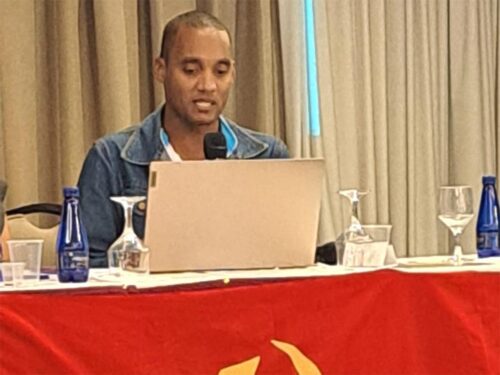Salas alluded to that fake news in the 1950s about the death of the historic leader of the Cuban Revolution Fidel Castro in the Sierra Maestra, disseminated by the U.S. media.
“The news was denied, but based on it, our Army understood that it had to generate and have its own communication channel to inform the people, and that is how Radio Rebelde was born,” he said.
Since that moment on, “the battle for information and/or disinformation against Cuba increased. Attacking the Cuban Revolution´s key leaders turned into social conquests continues to be top-priority”.
According to Salas, such purpose “is part of a strategy orchestrated and financed by/from the United States that in turn control the outlets, information and entertainment industry not only in U.S., but also worldwide”.
For Salas, “we cannot talk about a media war without mentioning the hostile and unjust blockade imposed by the United States on Cuba for over 60 years which provides them, as a logical consequence, with the whole base of operations and pivotal matrix to carry out discouragement and manipulation campaigns in our country”.
Regarding the media war against Cuba, ICTs (Information and Communication Technologies) were used given their impact on daily life and an example of this are the social networks, he said.
During the last few years, Cubans´ access to ICTs has increased, a phenomenon that helps to explain why such platforms are the scenario of most of the disputes.
It´s worth noting that for this purpose the United States annually allocates some $20 million to “programs for democracy”, a budget that is usually given to non-governmental organizations and in turn it is used to pay bloggers, independent journalists, representatives and content creators.
The Internet “facilitates the work of mercenarism and the unfair play that is being made on us from communication…We cannot be naïve; we cannot be simple observers of this reality.
pll/jcm/ocs









